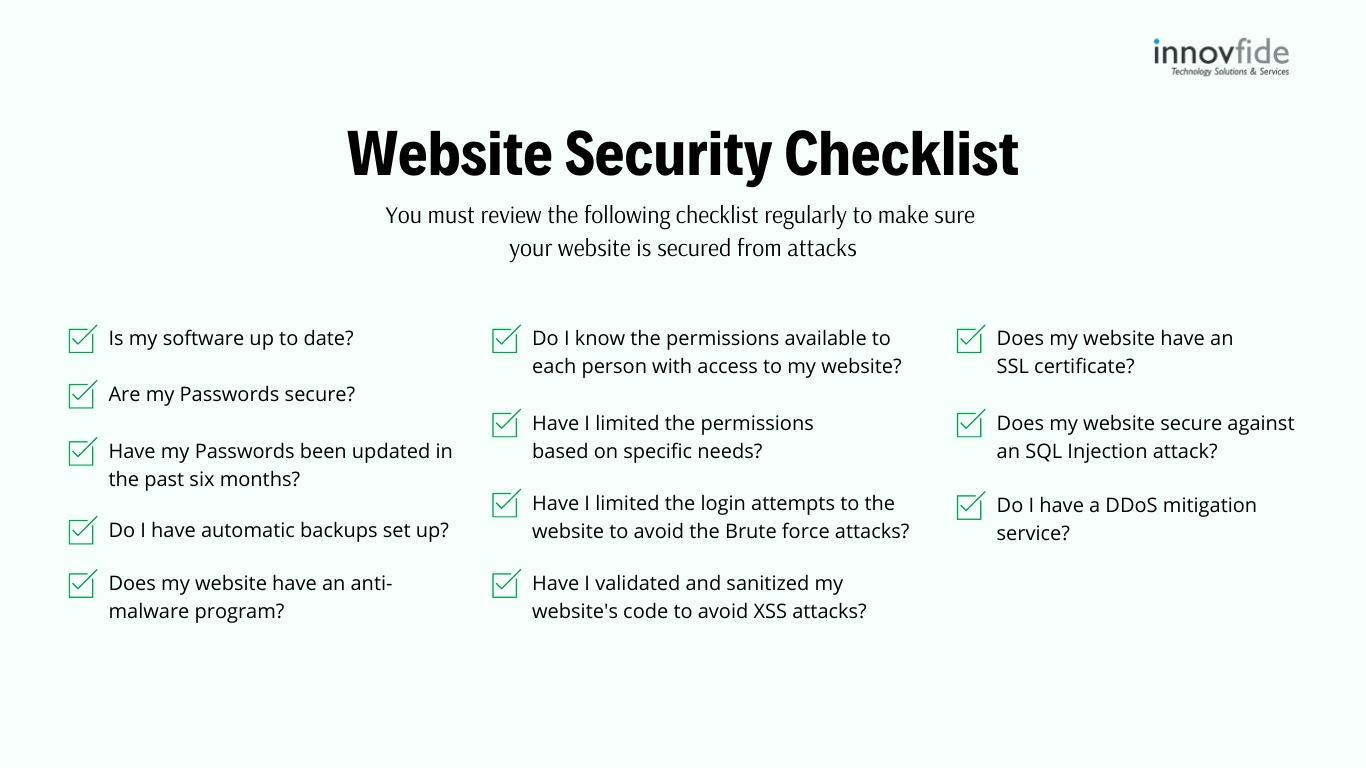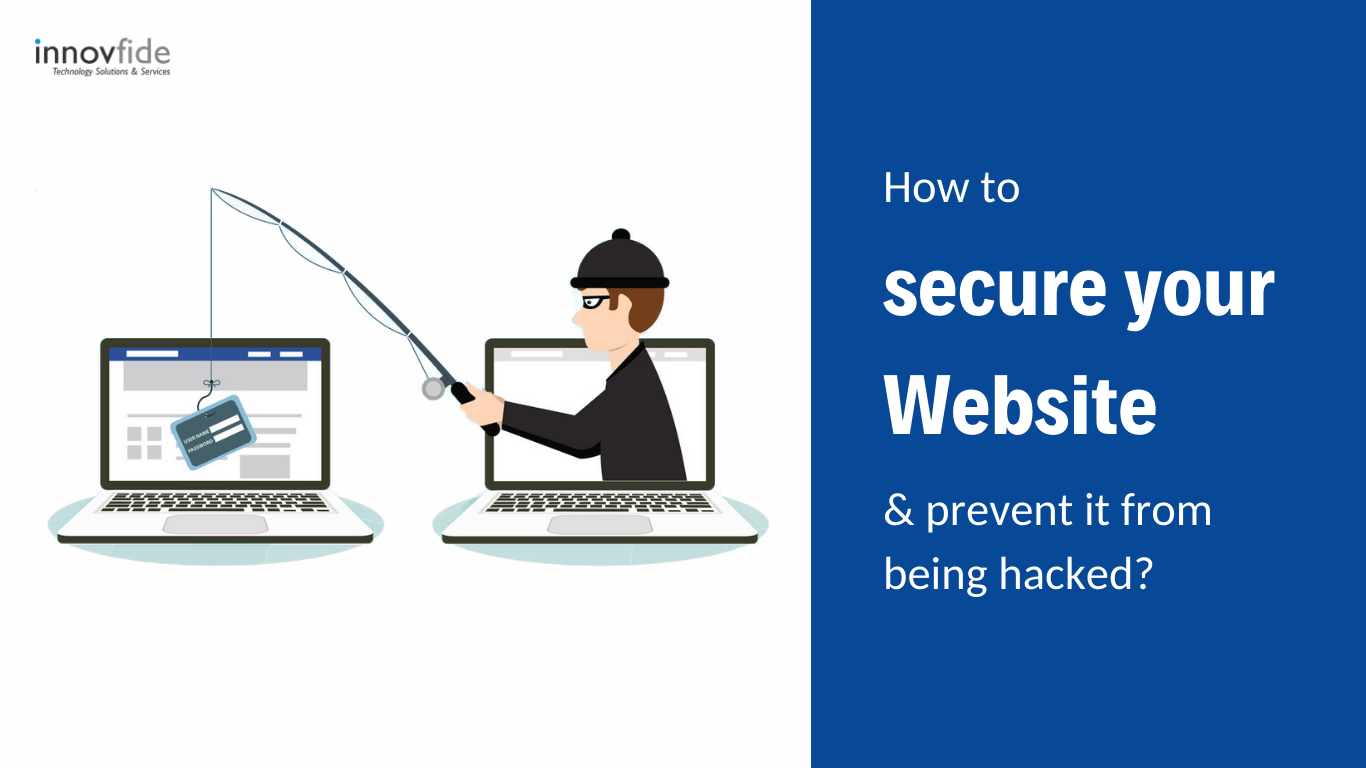The world is going digital, and your business needs to go digital too. One of the primary requirements of going digital is having a professional website. Your website will be your first identity on the internet. Your customers will interact with your website first before interacting with anyone from your company. So, it is absolutely essential to get a professional website and manage it efficiently.
However, the rise of the internet has also caused an increase in the number of hacking attempts. Hackers can hack your website and steal sensitive information, redirect it to non-related sites, or place ads on your website. Any successful hack will bring a bad name to your organization and depending on the nature of your business, could even have legal implications.
The first and the simplest step to ensure that your website is not hacked is getting the website developed by professional web developers. Getting it done by students or people offering low-price services could leave doors open for hackers. Let us look at some of the tips for securing and protecting your website from hackers.

Update Your Software
Updating your software is a vital step for keeping your website secure. Whether you are using WordPress or any other platform, it is necessary to check and install necessary plugins. Many features in a website are created as open-source software programs, and hackers tend to check the code and find any vulnerability in the code which can allow them to take control over your website. This does not mean using open-source products is bad, in fact, it is also believed open-source products are safer since best minds from across the world check the code before using.
Keep Your Passwords Strong
Choosing a strong password for your website can always be helpful. Go for a difficult or more secure password rather than a simple password like using numbers ‘12345’ or by using your name. Hackers always try to break your passwords by permutation and combination. Keeping a simple password can help them to hack into your website.
Avoid File Uploads Through Your Website
You should take precaution if anyone is uploading a file on your website or you can simply avoid any uploads. Anyone could add a malicious file, overwrite the existing file or upload a much bigger file that would affect the performance of your website. Though some business might actually need to accept the file and should provide a more secure way like allotting a specific file size, scan for malware, use file type verification, etc.
Use HTTPS
HTTPS (HyperText Transfer Protocol Secure) is effective as it provides more security for your website. It uses SSL protocol to encrypt communications so that hackers cannot steal your data. It encrypts the data from both the direction, i.e. from the server origin and the user, so sensitive information cannot be passed and observed by the hacker — for Example, your bank information.
Beware Of SQL Injection
SQL injection is basically an attack that helps the hacker to insert malicious code into your database and manipulate the data. The hacker generally uses a URL parameter to manipulate your database and gain website access. To stop this attack, simply use a parameterized query.
Manage Your Error Messages
The error messages that you display should not give out too much information. The hacker can exploit the information and gain the website’s root directory access. Instead, keep a simple message which will help your user to understand and link back to the main website.
Beware Of XSS Attacks
XSS attacks are one in which malicious scripts are injected on trusted websites by way of cross-site scripting. To prevent such attack, use advance SDL (Security Development Lifecycle) that simply limits the number of coding errors in your application or another way is to make your user re-enter the password before accessing the webpages on your website.
Web hosting provider
Your web hosting provider is an important part of your infrastructure that can affect the safety of your website. It is crucial to opt for a reputed hosting provider and not go for the cheapest one available in the market. A reputed web hosting provider will ensure that the software and all other associated infrastructure is updated regularly.
Regular Backups
One of the most underrated and ignored aspects of securing the website is taking regular backups. You should take regular backups of your website on the cloud as well as the local storage. If you do not know how you can do that, ensuring that it is covered on your website maintenance contract is crucial.
Disable The Features You Don’t Use
Website themes today come with a lot of features and plugins that you would, in all probability, never even use. It is smart to disable the plugins that you are no longer using instead of updating them regularly. However, be careful as disabling some of the plugins could interfere with the working of the website. Ask your website developer to do the needful.
Say No To Defaults
Most of us have the tendency to use the default URLs which are easy to guess. Using something as yoursite.com/wp-admin is very easy to figure out and then the hackers could attempt hacking your password. So, avoid using default URLs and protect Protect the wp-admin(WordPress) / administrator(Joomla) directory.
Change The Admin Username
During WordPress, Joomla or other CMS installation, you should never choose “admin” as the username for your main administrator account. Such a common name is very easy to guess making a step easier for hackers. Also, you should always disallow file-editing inside the CMS.
Input validations
Always ensure that there are form input validations on the client-side as well as on the server-side. This minimizes the bot attacks and safeguards your website from being hacked. It is a small but important part of securing your overall website.
Check with your website developer and ask for a yearly maintenance contract which will ensure that your website is regularly checked for any security loopholes. Your website is your years of hard work, and one security lapse could spell doom for your organisation. Act now to prevent that from happening!
